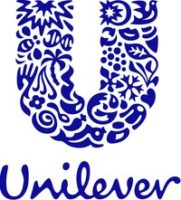The market remains “volatile,” according to a press release, due to fluctuating COVID-19 case levels and lockdowns. In North America and Europe, demand for in-home food has stayed strong, while demand for most beauty and personal care has remained low. Economic activity in India increased in the first quarter, but a sharp increase in COVID cases has much of the country returning to lockdown. Latin America saw market growth in spite of difficult macroeconomic conditions; China’s market is normalizing; and market conditions in South East Asia “remain challenging.”
“Unilever has made a good start to the year,” said CEO Alan Jope. “Our focus on operational excellence, innovation and purposeful brands is continuing to strengthen competitiveness and has delivered underlying sales growth of 5.7% for the quarter. We are driving the evolution of our portfolio, with strong growth in Prestige Beauty and Functional Nutrition.”
Business Separations The operational separation of Unilever’s Tea business—excluding India and Indonesia and partnership interests in the ready-to-drink tea joint ventures—is expected to complete this year. The company is evaluating which model will create the most value, and is considering options including an IPO, a demerger, a joint venture, or a disposal. Unilever has appointed an external CEO to lead the business into its next phase. The business to be separated generated revenues of around €2 billion in 2020.
Unilever is also working to separate several smaller beauty and personal care brands, predominantly sold in Europe and North America, including Q-Tips, Caress, TIGI, Timotei, Impulse, and Monsavon. The brands will operate under the name Elida Beauty. Together, the brands generated revenues of around €0.6 billion in 2020.
Related: Unilever to Acquire Onnit Hain Celestial Reports 4% Net Sales Increase in Q2 FY2021 Danone Announces Latest Acquisition, 2020 FY Report
Beauty and Personal Care Underlying sales for this category grew 2.3%, with 1.5% from volume and 0.8% from pricing. Skin cleansing grew in the first two months, followed by a decline in March; Unilever rolled out Dove’s Care & Protect line across Europe, India, and the Americas. Skin care and hair care both showed growth, with hair wash & care growth driven by strong performance in China and India, and a decline in styling driven by lockdown conditions. Deodorants declined.Home Care Underlying sales in this category grew 5.9%--volume rose 6.5%, offset by negative price of 0.6%. Fabric cleaning and enhancing grew; this was partially due to reopening in India, as well as the continued rollout of the plant-based Omo brand. Home & hygiene grew as demand for surface cleaners remained high, although year-over-year growth showed a decline in March, as it stands in comparison to March 2020’s early pandemic growth.
Food & Refreshment Underlying sales grew 9.8%, with 7.3% from volume and 2.3% from pricing. Out-of-home ice cream returned to growth, and in-home ice cream grew in the double digits; the Magnum brand launched its Double Gold Caramel Billionaire product in stick and pint formats. Tea saw volume and price growth. In-home foods were up mid-single digits overall, in spite of the fact that the category shows a decline in comparison to March 2020. Growth in China in the food solutions business offset declines in markets impacted by continued lockdown.
Moving Forward Looking to the future, Unilever expects to continue showing underlying sales growth, and is predicting a slight increase in operating margin. COVID-19 continues to cause additional supply chain costs, both in commodities and freight.
Unilever intends to commence a share buyback program of up to €3 billion in May, to be completed by the end of the year.
“We are confident that we will deliver underlying sales growth in 2021 within our multi-year framework of 3-5%, with the first half around the top of this range,” Jope continued. “We expect to increase underlying operating margin slightly for the full year, though with a decline in the first half driven by COVID-19 impacts, higher cost inflation and increased marketing spend over the prior year. Following another year of strong cash flow delivery, Unilever’s Board has approved a share buyback program of up to €3 billion. We are committed to delivering superior long-term financial performance through our sustainable business model, which we believe has never been more relevant than it is today.”










